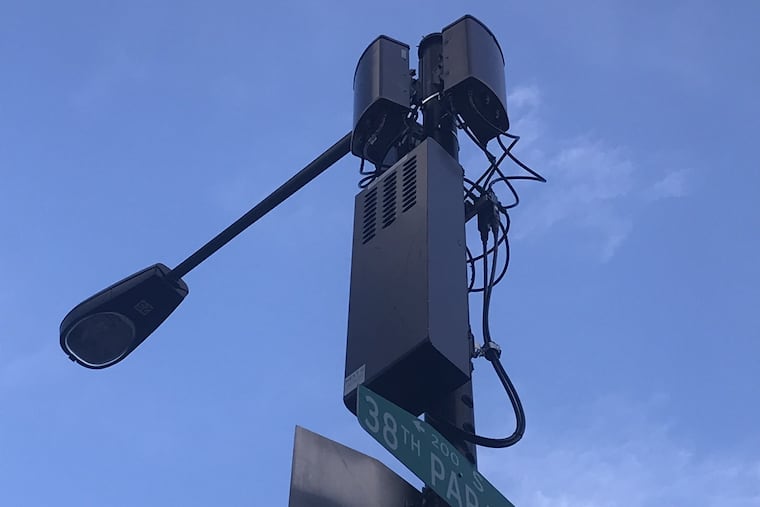Pennsylvania 5G bill that failed twice springs back to life in Harrisburg
Legislation that could make it easier and cheaper for wireless carriers to put tens of thousands of small cell antennas on utility poles throughout Pennsylvania seems to be moving swiftly.

Legislation that could make it easier and cheaper for wireless carriers to put tens of thousands of small cell antennas on utility poles throughout Pennsylvania has resurfaced in Harrisburg and seems to be moving swiftly.
The legislation — which some view as subsidizing profitable wireless carriers — has failed twice in recent years in Harrisburg. Municipal officials have said they fear the small cell antennas could mar the charm of touristy historic districts or be placed in residential areas without municipal zoning approvals.
Rep. Frank Farry (R., Langhorne) introduced the newest version of the 5G legislation Tuesday and a telecom subcommittee that he chairs held a 50-minute public hearing on it Wednesday morning. Three hours later, the House Consumer Affairs Committee scheduled a vote on Farry’s House Bill 1400 on Monday.
“I’m just not happy with the process,” Rep. Robert F. Matzie (D., Aliquippa) said at the hearing Wednesday morning. Matzie, the Democratic chair of the Consumer Affairs Committee, said that he didn’t have time to read over the proposed legislation because he only got it Tuesday.
Farry and others say there are safeguards in the proposed legislation to protect towns and neighborhoods.
Verizon Communications Inc. and AT&T have lobbied federal regulators and state legislators to ease rules and bureaucratic red tape on small cell antennas. A modernized wireless network could add $3.5 billion to Pennsylvania’s economy through telemedicine, robotics, and driver-less cars, Kevin Sunday, an official from the Pennsylvania Chamber of Business and Industry, said Wednesday in his testimony. Such a network also would help police and fire officials responding to emergencies with wireless streaming.
Wireless carriers and infrastructure companies could put 800,000 to three million small cell antennas on utility poles, or other public rights-of-way, around the United States over the next decade, experts say. These antennas are about the size of backpacks but extend wireless service only a city block or two.
Philadelphia has already installed about 1,800 of the small cell antennas in neighborhoods. Wireless carriers are expected to put thousands more into the city over the next several years.
Eric Swanson, professor of astronomy and physics at the University of Pittsburgh, testified that 5G doesn’t pose a health hazard to Pennsylvania residents — a big concern among some people.
David Sanko, executive director of the Pennsylvania State Association of Township Supervisors, said that Farry’s 5G legislation is an improvement over prior versions. "Legislation is a process and it’s not always pretty,” he added.
About 25 states have passed small cell antenna legislation, industry officials said. Among them are West Virginia, Delaware, Virginia, Ohio, and Michigan.
Rep. Pam Snyder (D., Waynesburg) said that the proposed 5G legislation “is not about building out the network” to rural areas. Many Pennsylvania rural towns still lack high-speed broadband services as phone companies failed to upgrade copper lines and as cable companies haven’t extended their networks.